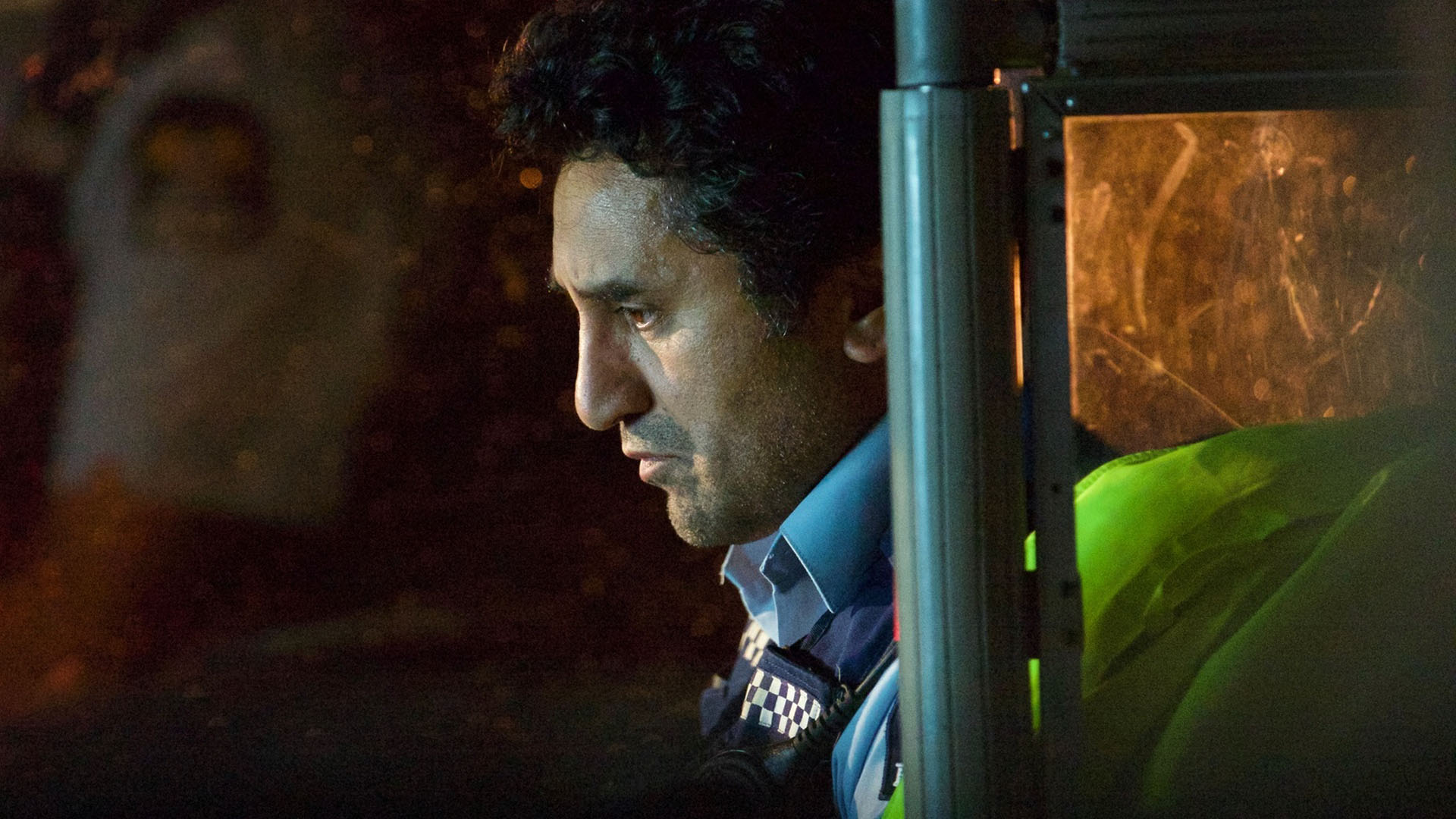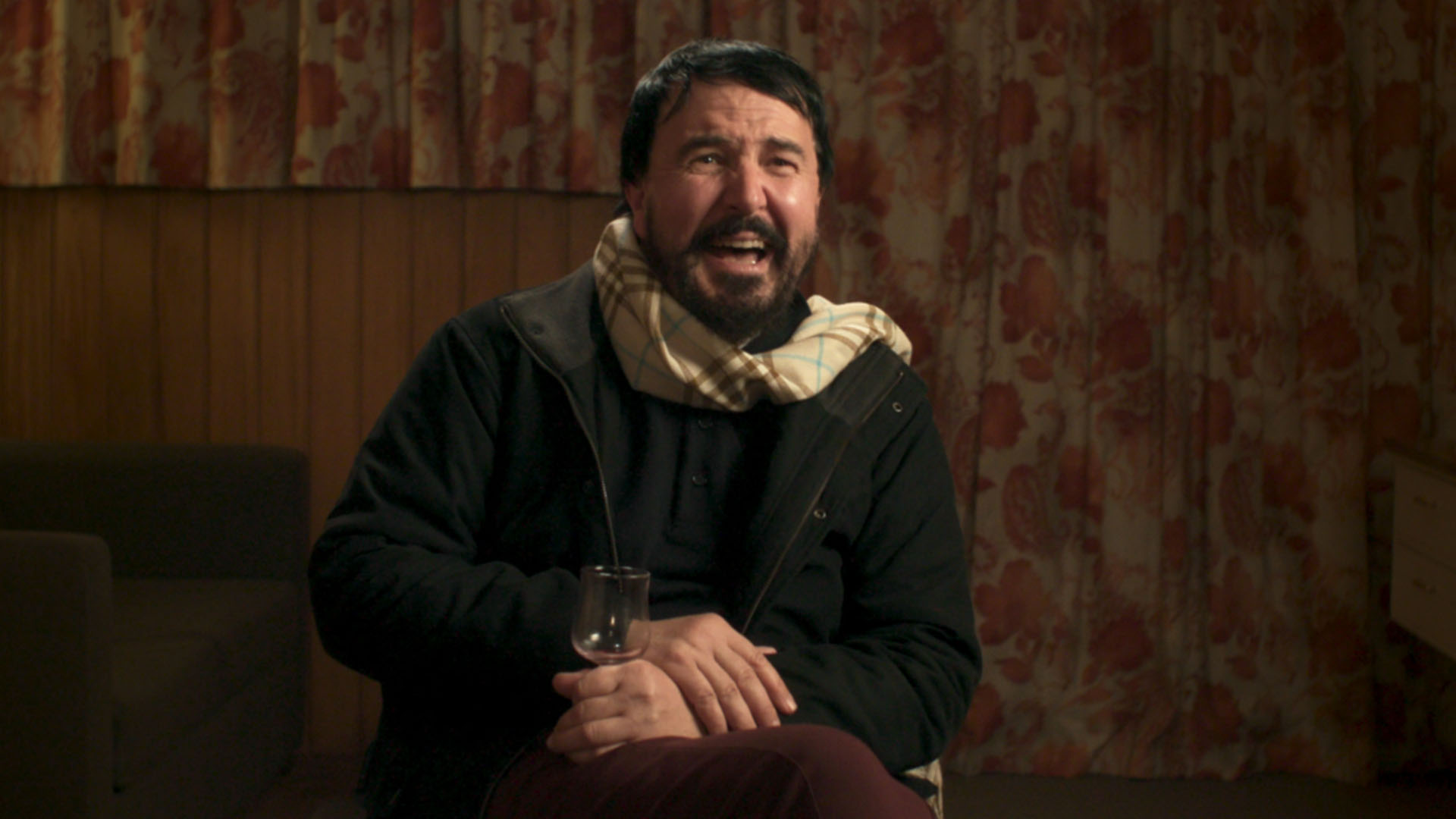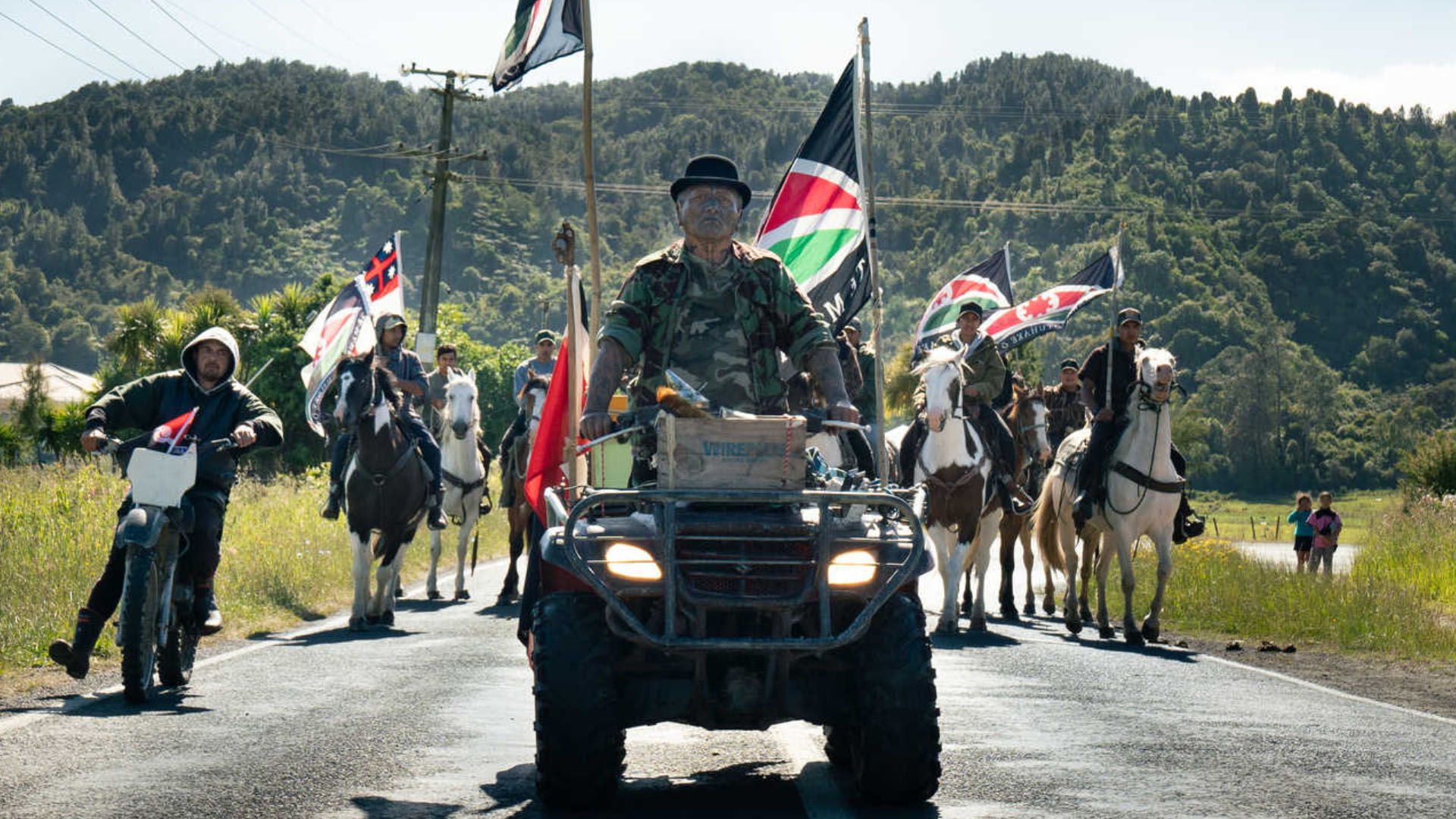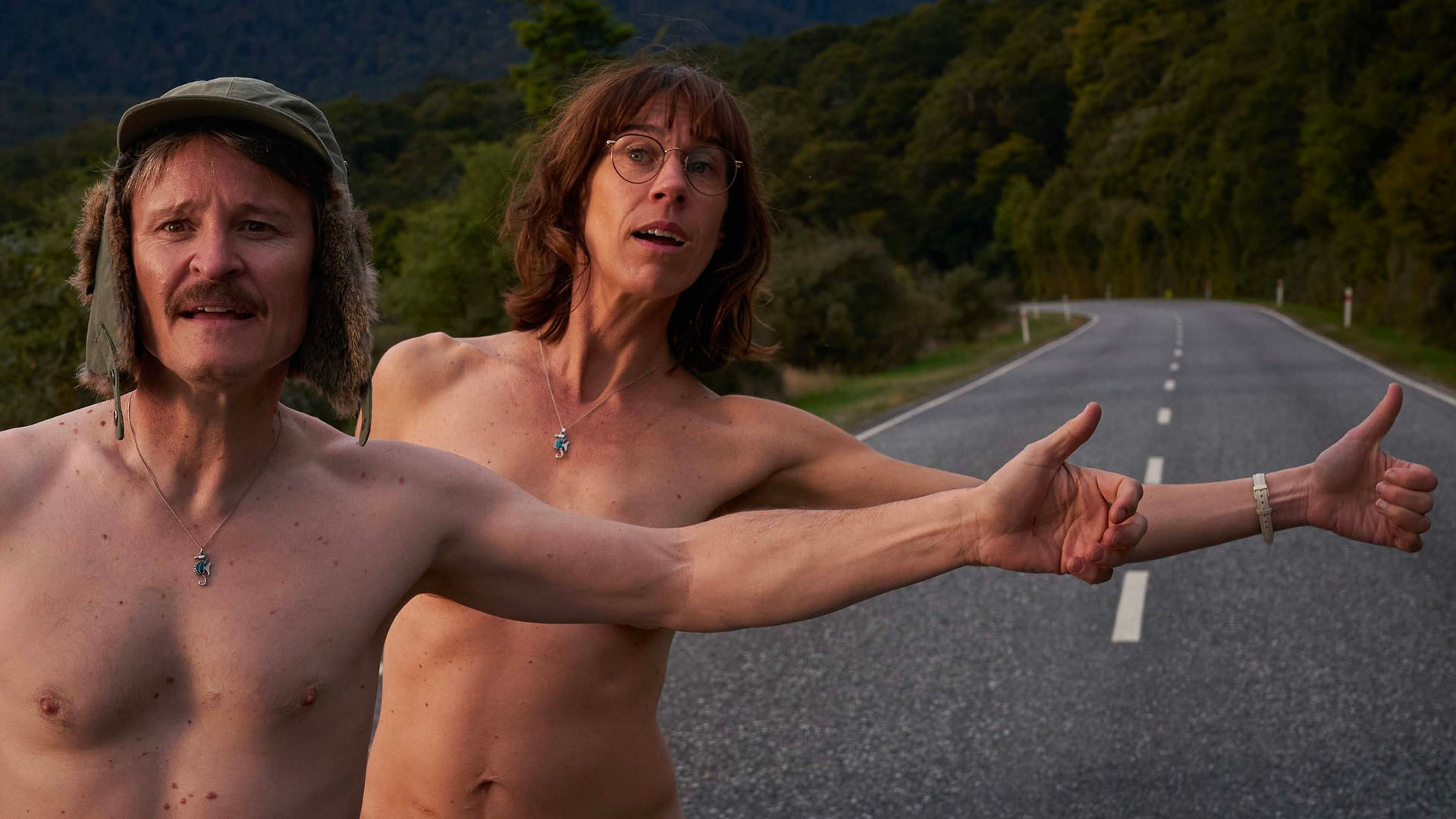Looking back at the year 2022 in NZ film

Dominic Corry reflects on a busy year in New Zealand film and highlights some of his faves of 2022.
Also, check out our regional round-ups of 2022 highlights from cinema of the United Kingdom and Australia.
2022 was far from a “normal” year at the movies in New Zealand, but it was a lot closer to one than 2021. And it saw a whole heap of notable local releases hit theatres.
While the vast majority of our popular filmed local output goes to television—the scripted side of which is thriving more than ever before—New Zealand films still have an incredibly important leadership role to play in telling unique stories that reflect New Zealanders, New Zealand, and its history. Except when that is the point.
Local films that tell a cool, interesting story first and foremost are much more effective at reflecting New Zealand than movies that exist primarily to platform our culture and heritage.
Which is a long-winded way of saying: I’m a slut for genre films, and we don’t make enough of them. There should be a law in place that prevents a year from going by without a full-on Kiwi horror movie being made here. Call it the Jackson/Blythe law.
Nevertheless, 2022 had plenty of belters, here are some of the highlights. (Disclaimer: I have not seen every single one of the movies mentioned here, but I’ve seen most of them).

The most memorable New Zealand film of 2022 (as in: I can’t get the darn thing out of my head) was David Farrier’s maddening, majestic nightmare documentary Mister Organ, which may say more about New Zealanders than any movie made in the last decade.
The bland insidiousness of its central figure feels so intrinsic to Aotearoa that it made me uncomfortable. There are of course Michael Organs everywhere, but we are world leaders in passive aggression, a mode of interacting that Organ takes to new heights.
But it is all the supporting figures in the film that really paint a picture of our misfit-laden country. The film’s ensemble (i.e. the string of people willing to talk about Organ on camera) collectively captures something essential and under-represented. Farrier earns his stripes as an essential Kiwi cultural emissary and documenter of our bizarre ways.

In genre terms, Tearepa Kahi’s Muru solidly proved its worth. I have a standing order for bad-ass action thrillers that take place in a specifically New Zealand setting, and this was a great example of that.
Its (repeatedly) self-declared status as a “response” to—rather than a “recreation” of—the Urewera Raids (which its plot deliberately mirrors, to an extent, then goes slightly Rambo), amongst other instances of police over-policing of Māori, feels entirely justified in the watching. Yet I’m still not entirely sure what the word “response” is supposed to mean in a cinematic context.
The perspective is made obvious, but the disclaimers/statements of intent ultimately undermine a gripping depiction that might’ve been more powerful if it was free and clear from a specific situation. I couldn’t shake the sense that the filmmakers were simply giving themselves permission to tap into the potency of recent history while altering it to their liking.
That said, if Quentin Tarantino can be celebrated for doing just that (in Inglourious Basterds and Once Upon a Time…In Hollywood), then I suppose Tearepa Kahi and his collaborators should be allowed to go there. Especially if it’s in the name of well-staged action theatrics. But QT didn’t put up any disclaimers.
Either way, Muru owned, and gave Tāme Iti the fist-pumping cinematic moment he’s long been worthy of.

Although it was set in a fictional country with a made-up language, Armagan Ballantyne and Jackie Van Beek’s gonzo comedy Nude Tuesday felt like a movie that could only have been made here. The Wellington theatre nerds-go-large vibes on display warmed the cockles of my heart.
And you simply couldn’t deny the power of James Napier Robertson and Paula Whetu-Jones’ Whina. The biopic occasionally felt like it was pushing up against the edges of the practical limits faced by dramas (especially historical dramas) in this country, but I suspect not a single viewer of the film made it through with dry eyes.
Speaking of eyes, I am ashamed to admit I rolled mine a bit at the prospect of the documentary Dame Valerie Adams: More Than Gold, questioning if we really needed another doc about a Kiwi sporting hero. But hot damn if Adams’ singular spirit didn’t shine through beautifully in Briar March’s film, during which I also cried a lot.
Destined-for-stardom Kiwi talent Ana Scotney got a great showcase in Michelle Savill’s Millie Lies Low, which leaned into New Zealand anxiety over the pressure to go to other places. More movies should try to explore how much we hate ourselves in this country.
Tom Levesque’s ASMR drama Shut Eye showed that self-starting local filmmakers are still motivated enough to mount their own movies, and it garnered some pretty encouraging notices.
2022 also saw a small torrent of locally-shot (but not always set) romantic comedies seemingly designed for streamers. Destination Love, Written in the Stars and The Royal Treatment did not see the inside of cinemas, but their existence seems notable, if only for keeping ex-pat actors such as Anna Hutchison, Kim Crossman and Brooke Williams busy, and back in the country, temporarily.

I still haven’t seen X or Pearl, and I still consider it a crime that the New Zealand-shot horror and its prequel didn’t get a proper theatrical outing here. Nuts to that.
New Zealand/Canadian co-production Night Raiders got a theatrical release in early 2022. I admired and was energised by the film’s inclusive intentions (and the presence of a prominent Māori character played by The Rings of Power’s Alex Tarrant, who seems like he’s gonna be a star), but I found its grasp of genre storytelling a little lacklustre.
My favourite New Zealand film of the year is Avatar: The Way of Water, if that is allowed. I loved seeing the Māori influence on the film (moko, pūkana, a proper explanation of how to pronounce “Ngāti”) and how its themes align with the Māori relationship with the land and nature. Plus there were some sweet boat crashes. It doesn’t get more Kiwi than that.
















